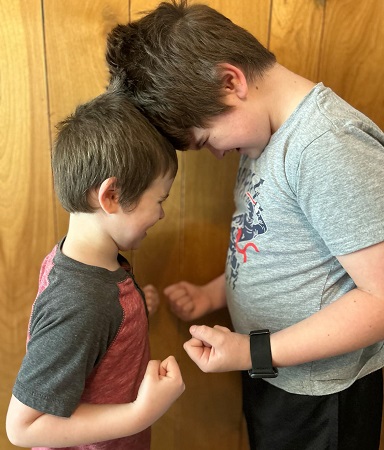Butt Heads with Someone
 When we butt heads with someone, we cause and receive pain. No fun.
When we butt heads with someone, we cause and receive pain. No fun.
Literally, to butt heads means to hit heads together.
We often see this when animals lock horns. They fight to determine who will lead their group.
Figuratively, to butt heads means to strongly disagree or have an intense argument.
This causes problems in any relationship:
- Families
- Friends
- Neighbors
- Political parties
- Social organizations
The tactics in such arguments aim to hurt rather than heal.
- Name calling
- Disrespect
- Physical or verbal fights
Rather than butt heads, we need to learn to get along.
We can disagree in an agreeable way. If we explain our differences in a calm, respectful manner, everyone wins. Two heads are better than one applies even when the two heads disagree.
“What causes fights and quarrels among you? Don’t they come from your desires that battle within you?” (James 4:1 NIV).
Thanks to Tracy Crump for the suggestion and to Megan Wollman for the photo.
Do you have an expression you want explained or a thought about this one? If so, please comment below.
Subscribe to receive my weekly posts by email and receive a free copy of “Words of Hope for Days that Hurt.”
If you enjoyed this post, please share it with your friends.



 Sometimes you need to save your breath.
Sometimes you need to save your breath. I love fences.
I love fences.